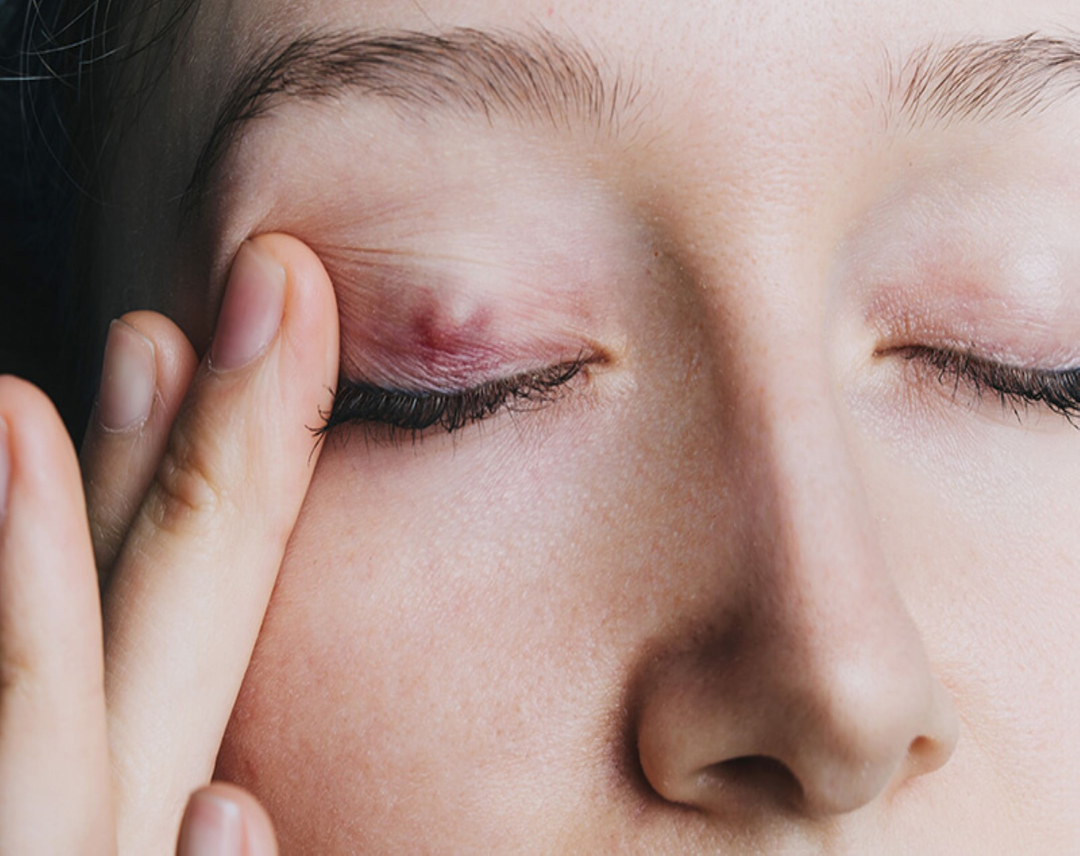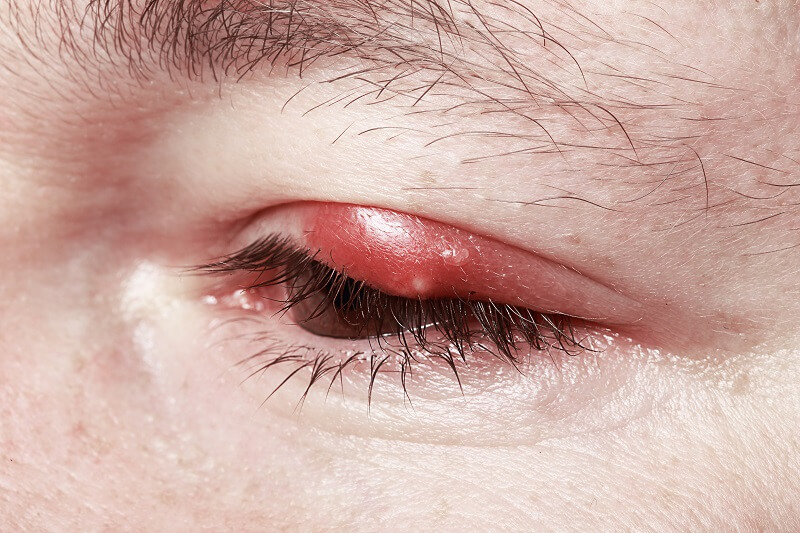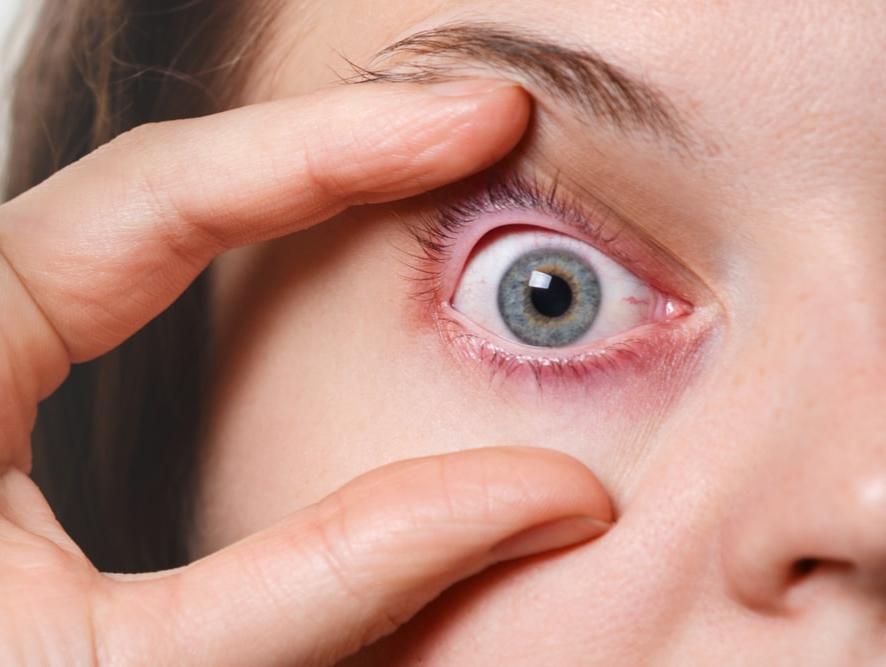
If an oil-secreting gland in the eyelid becomes blocked, the gland enlarges, creating a swelling called a chalazion. It is a swelling in the eyelid that may be painless. A chalazion is also referred to as a meibomian cyst or tarsal cyst
Eyelid glands are called the meibomian glands. They are also known as the palpebral glands, tarsal glands, or tarsoconjunctival glands. The eyelid glands produce a lubricant which is discharged through tiny openings in the edges of the lids. The lubricant is a oily substance called sebum. Glands that secret sebum are called sebaceous glands. Sebaceous glands usually open into hair follicles.
A chalazion may at first look like a stye, but unlike a stye, it is not on the eyelid margin. Usually, the pain and redness associated with a chalazion disappear after a few days. However, if the swelling is large, it may cause long-term discomfort, and pressure on the front of the eye can interfere with vision.

CAUSES:
Chalazia are associated with the following:
- Acne rosacea
- Chronic blepharitis
- High blood lipid Poor lid hygiene
SIGNS AND SYMPTOMS
Patients will present with one or many focal, hard, painless nodules in the upper or lower eyelid. They may report some enlargement over time, and there may be a history of a painful lid infection prior to the chalazion development, but this isn’t always the case.

MANAGEMENT
If your doctor diagnoses a chalazion, he or she will probably wait for several weeks before arranging any treatment because it will probably disappear on its own. Meanwhile, if the chalazion is painful or irritating, holding a clean, warm, damp cloth against it may help.
Chalazia are non-infectious collections of immune cells that may require intensive steroid therapy. If hot compress is ineffective, inject triamcinolone acetonide (Kenalog) 5mg/ml or 10mg/ml directly into the chalazion. Approach the lesion from the palpebral side, and inject 0.05 to 0.3ml in standard form, using a tuberculin syringe and 30-gauge needle.
A persistent chalazion can be treated by a simple operation in which a small cut is made in the inner surface of the eyelid and the contents of the swelling removed The procedure is performed with local anaesthesia and is painless.
Disclaimer
The Content is not intended to be a substitute for professional medical advice, diagnosis, or treatment. Always seek the advice of your physician or other qualified health provider with any questions you may have regarding a medical condition.